Zoom
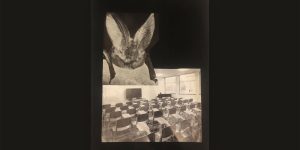
Creating a New Normal: Arts, Design, Humanities and Social Sciences 4 Emergency?
Eveline Wandl-Vogt, Nirmala Menon, Dario Rodrighiero, Elian Carsenat
Panel discussion: As this virus, and maybe further to come, affects the world and our way of living, we are aiming to explore pioneering research and action based art and design. During the time of social distancing and quarantining, it has become evident that even with the principles of science and technology that provide us with access to practical methods for securing our lives, humanities-based principles and skillsets have played a key role in enabling us to evolve. In light of this, we might want to rethink our approach to future living.
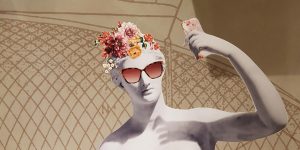
Exponential Mindset: The Skills of an Exponentialist
Niki Ernst, Eveline Wandl-Vogt
A 4-Sessions dive deep into the Exponential Mindset. An interaction series to consider the SDGs from an exponential growth strategies perspective.
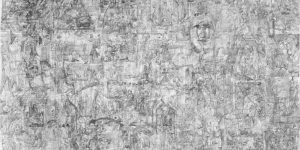
Creative Question Challenge: Quietly Subversive
Ciprian Mureșan (RO), Sanneke Stigter (NL), Corina Bucea (RO)
'Let us finish what we started'. This is how the UN introduces its first Sustainable Development Goal - to end poverty in all forms and dimensions by 2030. The 17 Sustainable Development Goals and their 169 targets have been described as a sprawling, misconceived mess of grandiose intentions. The title of the development agenda itself - 'Transforming our World' - oozes utopian ambition. It was adopted by 193 nations in 2015. Five years later and with ten years left, how do you think our world will transform?
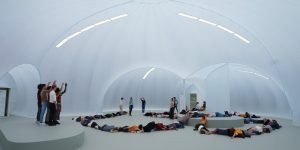
Creative Question Challenge: Embodied perception and life as movement
Alexandra Pirici (RO), Paco Calvo (ES), Corina Bucea (RO)
'Let us finish what we started'. This is how the UN introduces its first Sustainable Development Goal - to end poverty in all forms and dimensions by 2030. The 17 Sustainable Development Goals and their 169 targets have been described as a sprawling, misconceived mess of grandiose intentions. The title of the development agenda itself - 'Transforming our World' - oozes utopian ambition. It was adopted by 193 nations in 2015. Five years later and with ten years left, how do you think our world will transform?
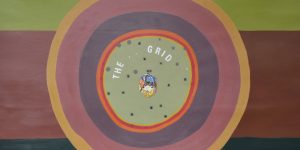
Community Creates Mobility: Participatory Speculative Critical Design beyond dream-making for the City.
Eveline Wandl-Vogt, Niki Ernst, Claudia Falkinger, Peter Zehetbauer, Wolfgang Preisinger, Elisabeth Füssl, Penesta Dika, Aleyda Rocha Sepulveda; lightning talk: Jeffrey Schnapp
Co-Envisioning Mobility Infrastructures - The challenges facing cities around the globe are complex and multidisciplinary by nature. Attempting to solve them in conventional linear ways is insufficient for addressing these manifold human-environment relationships that are at the heart of these challenges. Alternative approaches are necessary.
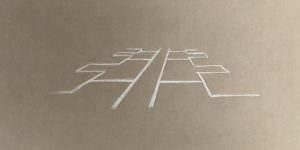
Affordances of spaces
Elena Cologni
Accelerating Knowledge for the SDGs: Life streamed session - The work developed from a two-year long investigation into ‘architectures of difference’, is based on a postcard in sculptor Barbara Hepworth’s collection (circa 1952), in a note she refers to this in terms of the space between people: it’s relational and social aspects. The piece also evolved from considering the punctuations found in our cities’ grounds, and how these contribute to developing a sense of attachment and belonging, which is at the basis of wellbeing (eg. Lived Dialectics, 2016, MuseumsQuartier, Vienna; Seeds of Attachment, 2016/18, New Hall Art Collection, Cambridge).
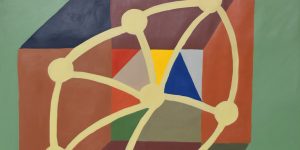
museum of knowledge science
Eveline Wandl-Vogt, Atiq Hashmi, Andreas Brandner, Louise Deininger
Virtual co-design session - Knowledge is at the heart of sustainable development. The achievement of the Sustainable Development Goals requires therefore effective knowledge management. However, knowledge needs to be understood in regional, societal, historic and cultural context. Art and culture are essential to the understanding of knowledge, specifically when knowledge - and its various aspects and processes - is reflected as a subject of art. Beyond reflecting knowledge, art is also a medium of knowledge, like articles or books.
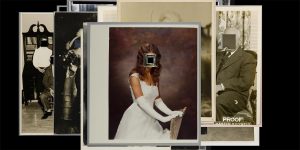
CURATORIAL A(I)GENTS
metaLAB (at) HARVARD
Eight experiments in the computational curation of collections - Curatorial A(i)gents consists in eight machine-learning-based experiments in and around museum collections and data sets developed by members and affiliates of metaLAB (at) Harvard, an idea foundry, knowledge-design lab, and production studio experimenting in the networked arts and humanities.
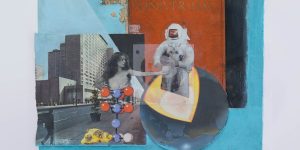
Algorithm Inventarium: methoda-thon
Matthew Battles, Max Haarich, Aleyda Rocha Sepulveda, Eveline Wandl-Vogt
Towards Inclusive, Sustainable Futures - The experimental "methodathon" is part of a series of “algorithm inventarium sprints” related to the project Algorithm Inventarium (AI+): diverse co-creation interventions combining action research approaches for accelerating the collaborative auditing of algorithms (e.g. by applying gamification techniques for data awareness, or auditing through interfaces). The aim of this session in connection with the ars electronica festival community is to identify, co-create and/or discuss specific methods, protocols and experiments for participatory research in the spirit of citizen science and community-based research in Vienna.
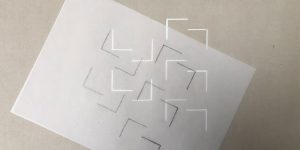
Algorithm Inventarium: The Greater Good Ethics Canvas
Eveline Wandl-Vogt, Henry Dobson, Max Haarich
Towards Responsible, Humane Technologies - In this interaction we are introducing the “Greater Good Ethics Canvas” to be used for the development of Humanity Centered Technology.
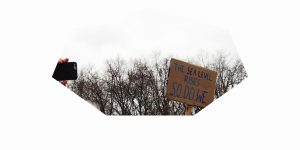
Creative Question Challenge: Radical change by working together
Kat Austen (UK/DE), Indrė Žliobaitė (FI), Laurence Gill (IE), Andrew Newman (AT/AU)
'Let us finish what we started'. This is how the UN introduces its first Sustainable Development Goal - to end poverty in all forms and dimensions by 2030. The 17 Sustainable Development Goals and their 169 targets have been described as a sprawling, misconceived mess of grandiose intentions. The title of the development agenda itself - 'Transforming our World' - oozes utopian ambition. It was adopted by 193 nations in 2015. Five years later and with ten years left, how do you think our world will transform?
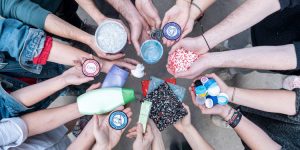
Meet the S+T+ARTS Community: Building Open Source Platforms
Joseph Klatt (US), Sören Lex (AT)
Precious Plastic and Precious Plastic Universe, started by industrial designer Dave Hakkens in 2013, is one of those platforms: focused on the reduction of plastic waste through sharing an open source toolkit of technologies and ideas, it has become a global movement of 80.000 people connected by the same passion and vision.
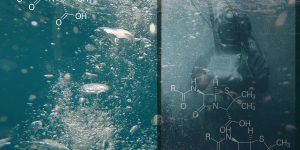
Meet the S+T+ARTS Community: Art & Science Collaborations
Ingeborg Reichle (AT), Michael Sauer (AT), Robertina Šebjanič (SI), Gjino Šutić (HR)
When artists, scientists and scientific research institutions join forces on collaborative projects, the collision of methods often leads to new and exciting perspectives for both the artistic and scientific practice.
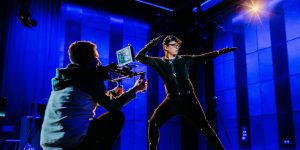
STEAM Education in Europe II
Participating Gardens: Birmingham - STEAMhouse, Castelo di Rodrigo - Open Science Hub, European Platform for Digital Humanism - Creative School
What constitutes creativity and imagination is a potentially contentious point, yet an outlook that focuses on areas of intersection between the arts and sciences can lead to certain, tangible benefits. These can include techniques for collaborating across disciplines, an ability to consider varied perspectives, and skills in identifying points of common ground. Such competencies are combinatorial in nature, and if integrated into a higher education curriculum, will lead to an acceleration in transdisciplinary innovation. Join us in our Birmingham Garden as we explore approaches to STEAM education with some of the leading transdisciplinary institutions in Europe.

STEAM Education in Europe I
Participating Gardens: Birmingham - STEAMhouse, Amsterdam - NXT Museum, European Platform for Digital Humanism - STEAM INC
What constitutes creativity and imagination is a potentially contentious point, yet an outlook that focuses on areas of intersection between the arts and sciences can lead to certain, tangible benefits. These can include techniques for collaborating across disciplines, an ability to consider varied perspectives, and skills in identifying points of common ground. Such competencies are combinatorial in nature, and if integrated into a higher education curriculum, will lead to an acceleration in transdisciplinary innovation. Join us in our Birmingham Garden as we explore approaches to STEAM education with some of the leading transdisciplinary institutions in Europe.

STEAM Education in VR + AR
Participating Gardens: Birmingham - STEAMhouse, Sydney - Tactical Space Lab, European Platform for Digital Humanism - STEAM INC
Can our systems manage themselves? How can we design resilient institutional structures that are self-adaptive? In this tour we will visit a selection of participating gardens who are experimenting with institutional models that can adapt to future challenges.
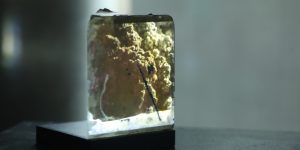
Creative Question Challenge: Can unheard signals inspire change?
Siobhán McDonald (IE), Chris Bean (IE), Adriaan Eeckels (BE)
'Let us finish what we started'. This is how the UN introduces its first Sustainable Development Goal - to end poverty in all forms and dimensions by 2030. The 17 Sustainable Development Goals and their 169 targets have been described as a sprawling, misconceived mess of grandiose intentions. The title of the development agenda itself - 'Transforming our World' - oozes utopian ambition. It was adopted by 193 nations in 2015. Five years later and with ten years left, how do you think our world will transform?
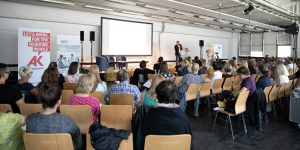
Symposium “Perspektiven politischer Bildung”
Arbeiterkammer OÖ (AT), Pädagogische Hochschule OÖ (AT)
Artificial Intelligence (AI) is omnipresent, without us always being aware of it. For many years now, it has been making our everyday lives easier, for example when cell phones are unlocked by means of face recognition or when individual advertising guides us through the jungle of the Internet. AI can manipulate us humans. Can it thus become a danger to democracy? The first signs of this apparent development were brought about by the brexite vote or the US presidential elections, for example.
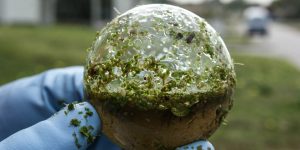
Satellite Event – The role of art in the post-pandemic world
UNESCO webinar In the post-pandemic world, nothing will be the same; what can be the contribution of art to the new world that is arising?
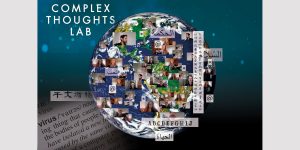
Complex Thoughts Lab
In the post-coronavirus scenario, The Complex Thoughts Lab invites to think outside the box to put together a model of the new world after COVID-19. Are we willing to rethink our nature, the concept of well-being? Will we be able to commit ourselves to bequeath a better world to future generations? The students share ideas to build a world model facing the next generations and transforming the Covid-19 crisis into an opportunity.


